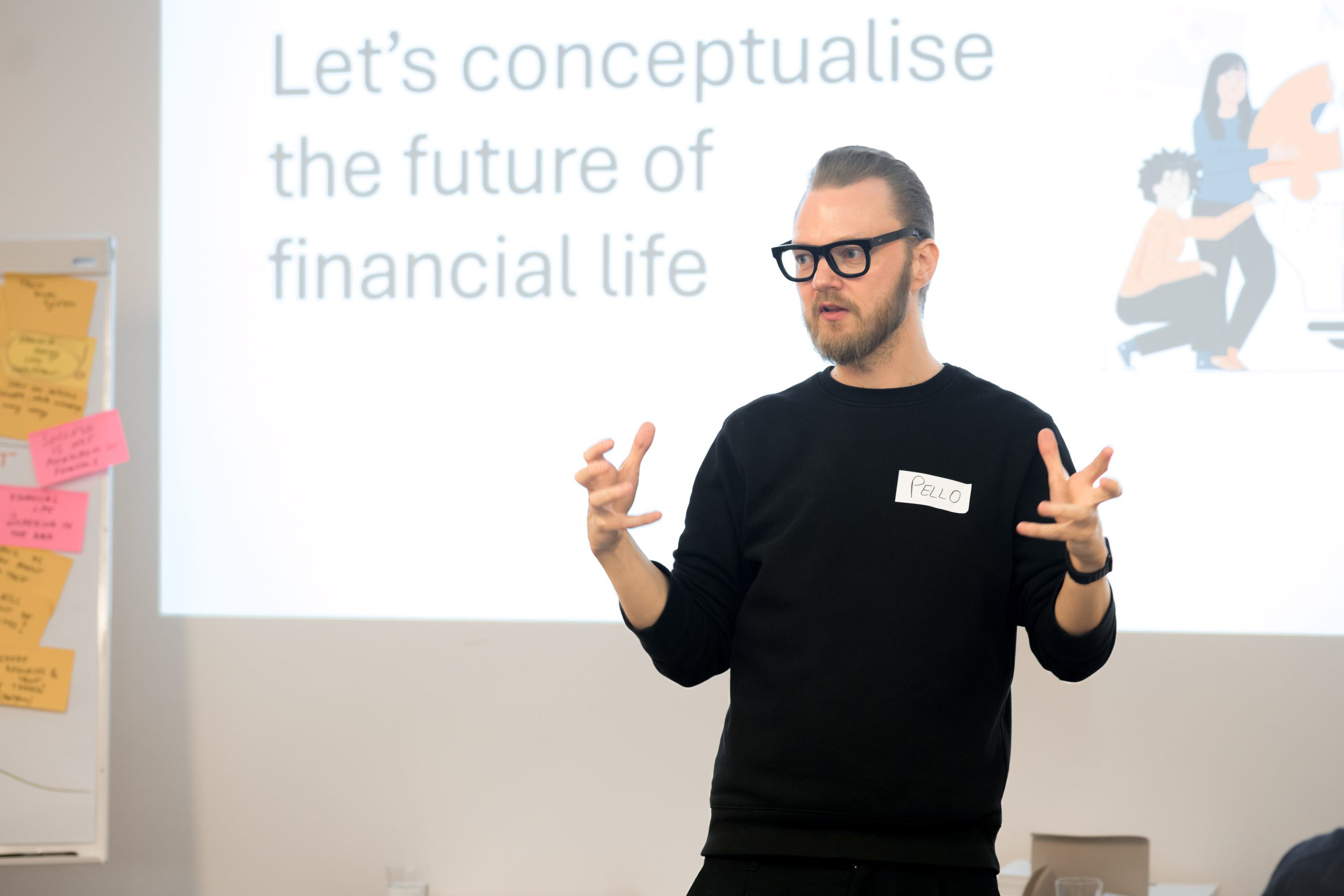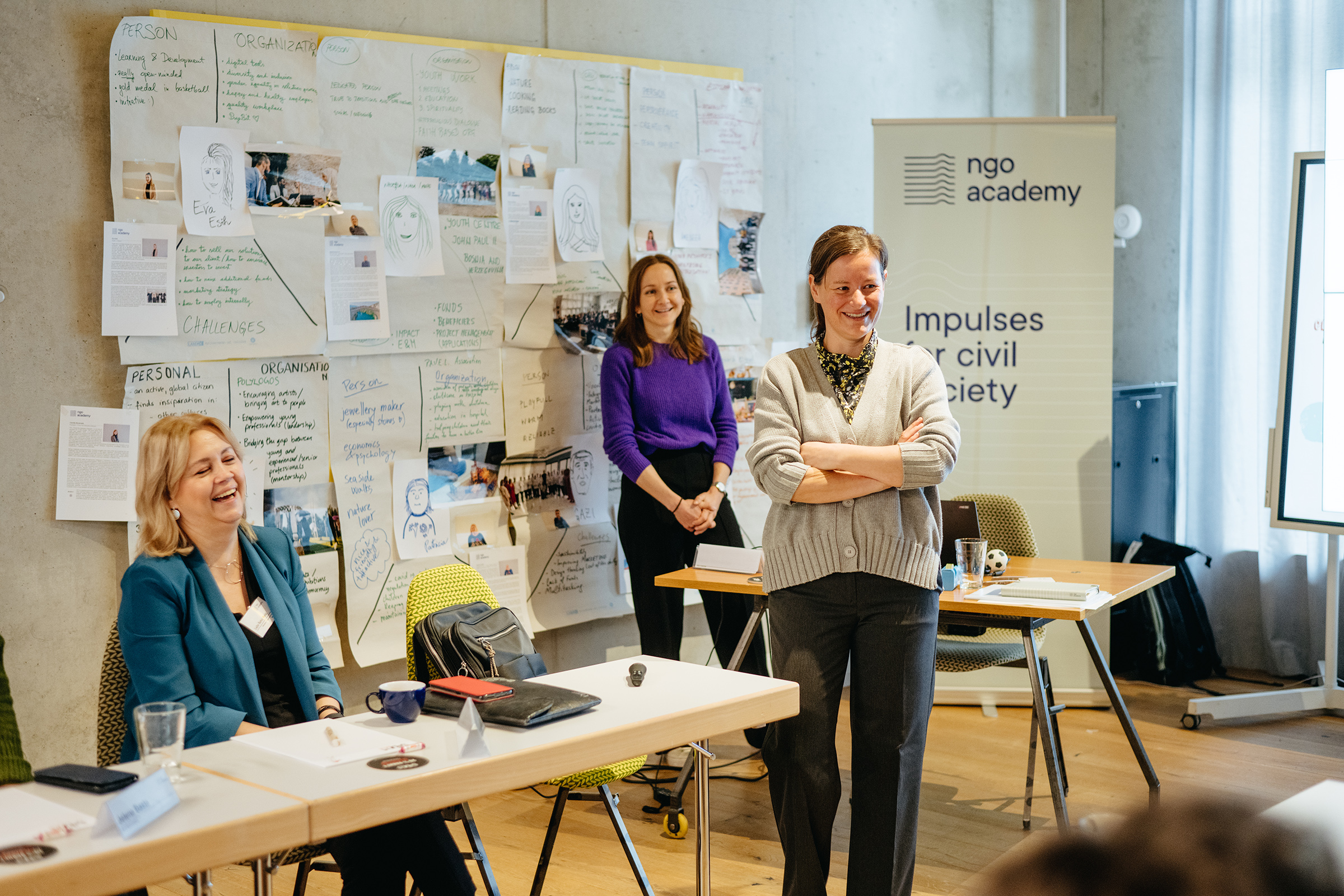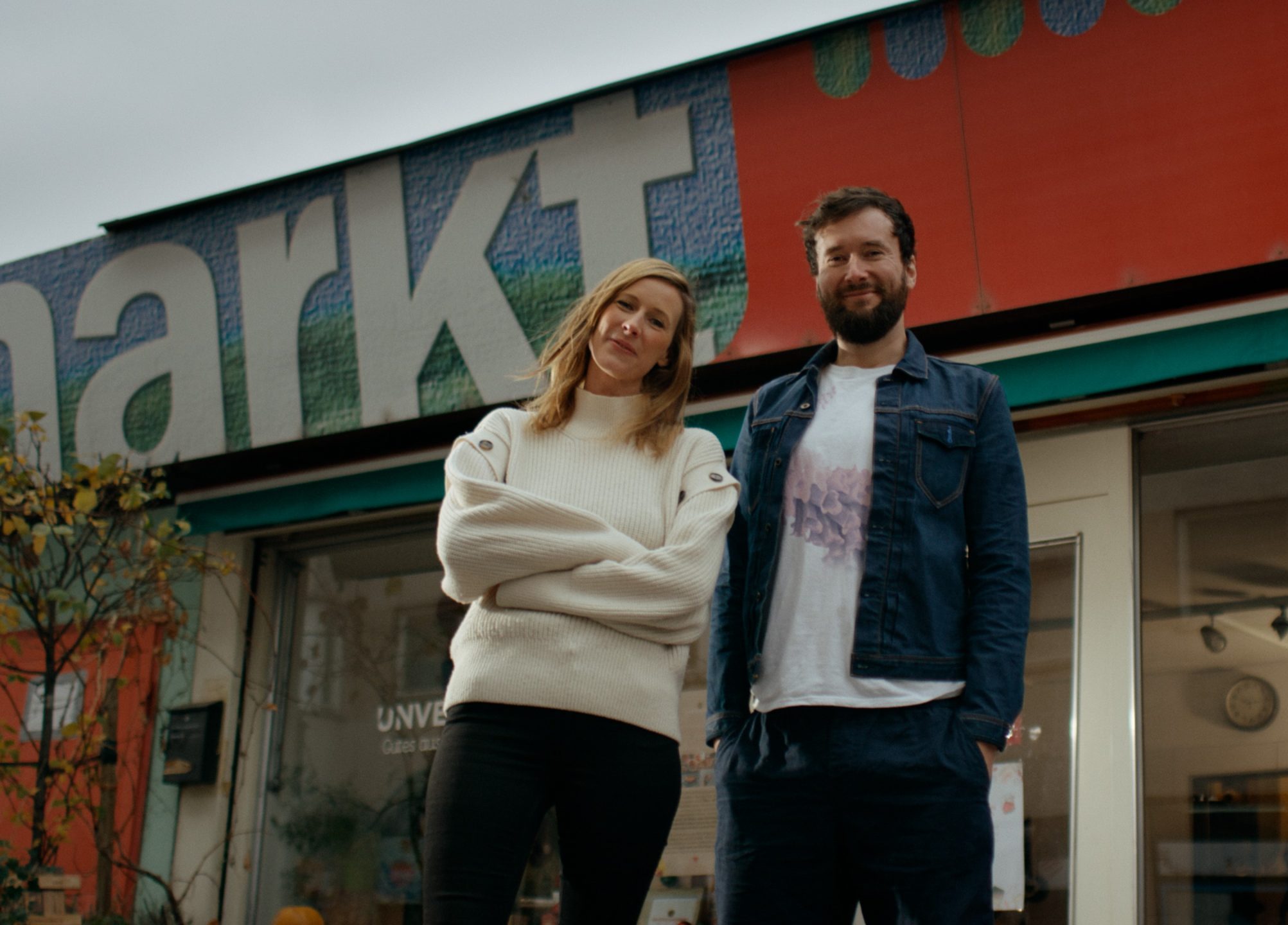Journal
April 7, 2025
Reading Time: 9'
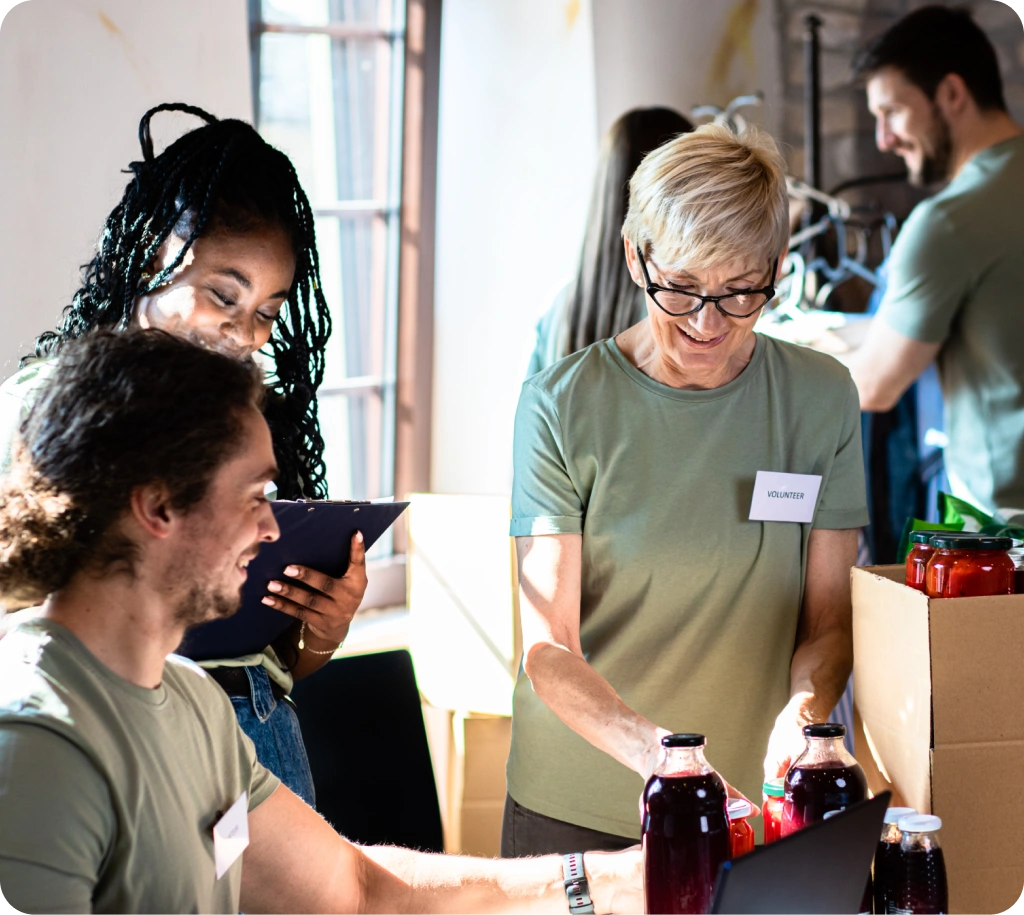
Marc: Where impact leads the way
It’s surprisingly common for world-changing ideas to lack financing. The new Marc Impact Programme helps social businesses achieve their goals—and become interesting for investors.
Everything has its time, including clothes. Parents of young children know this all too well: shoes and coats that were a bit too big a moment ago are now suddenly too small. If there are no younger siblings to hand them down to, the castoffs might unfortunately end up in the bin. Some items get donated or go to second-hand shops, though—and have the chance of a second life.
The second-hand market has been booming in recent years. Young people in particular like reusing things because it means fewer resources are needed to make new things. But for the shops and organisations that sell used items, the boom has also created some rather big challenges. If a shop is receiving more items, it has to sort through more items. Checking the quality, describing the product, and pricing it—that all takes work. And there’s even more to do if you want to sell the items online.
The Austrian app Minimist aims to make life easier for social organisations and second-hand shops. From a photo, the app recognises the item, writes a product description, connects to large second-hand online platforms or to small independent online stores, and automatically uploads the product with a suggested price.
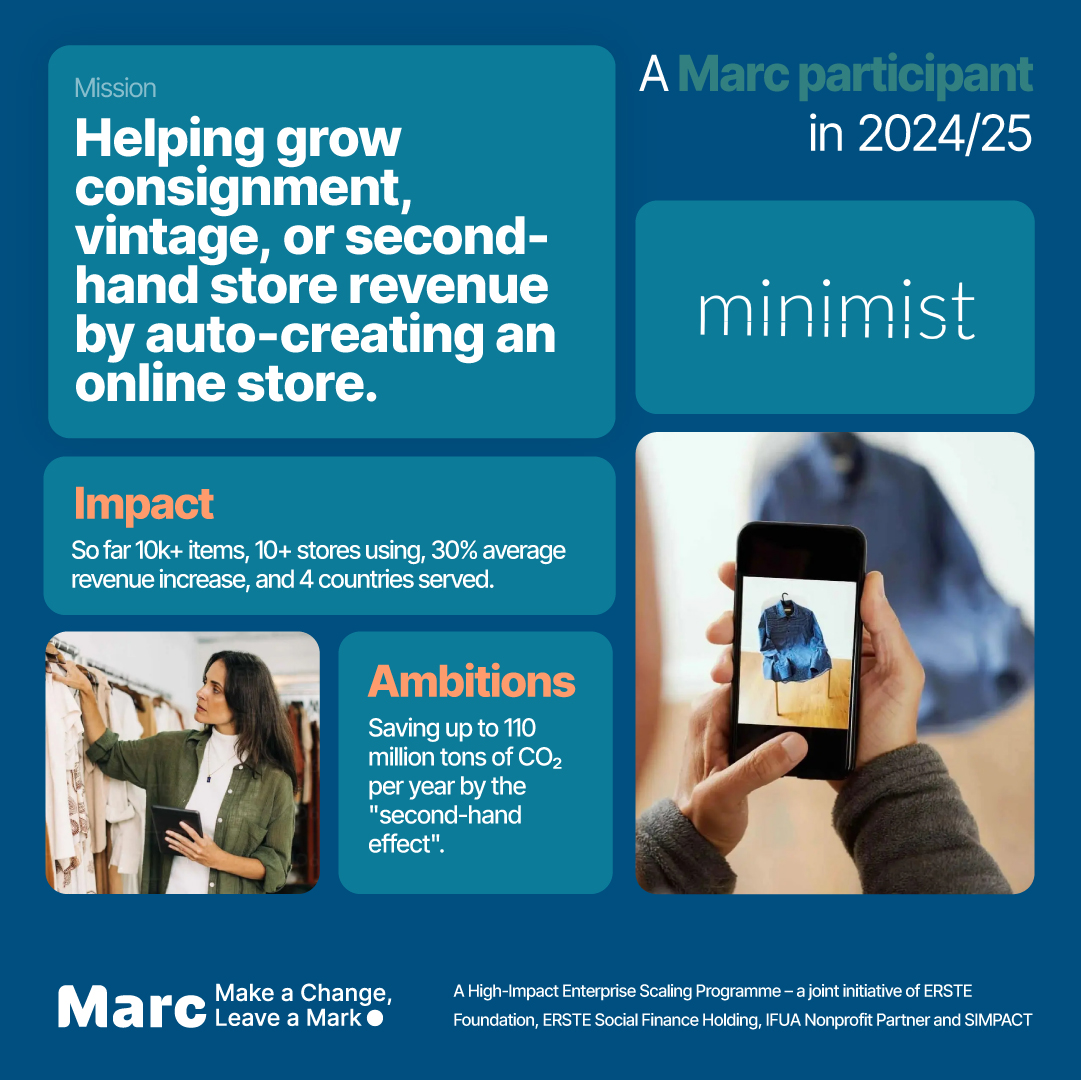
The app came about because Stephan Hofmann was incredibly frustrated with online shops. Hofmann, who was born in New Zealand and has Austrian roots, worked as a product manager for Google and Spotify before he had the idea for Minimist. Now it’s a finished product which supports business that, as well as needing to turn a profit, also have social and environmental objectives. And the market for this looks like it’s growing.
Like all young companies, Hofmann’s start-up, which he founded in 2024, needs money to grow. »The team is ready to grow further, but we need capital. Marc doesn’t just provide financial support, it also offers individual help with fundraising—which is exactly what Minimist needs in this phase,« says Hofmann, explaining why the company applied to the programme.
The Marc Impact Programme helps start-ups put their social and environmental ideas into practice while also laying a sustainable financial foundation for themselves. »Companies that aim for impact are often very good at developing solutions to problems. But they sometimes need help turning those into a scalable business model that’s also interesting for investors,« says Florian Bauer, Executive Director of Social Finance & Impact Investment at ERSTE Foundation.
Support tailored to each start-up
Marc is designed to help close this gap. In 2024, the pilot phase of the programme kicked off in Hungary, Romania and Austria. A total of 143 organisations applied. Of those, 65 were accepted into the first training phase, and 39 qualified to go on and receive individually tailored support and advice.
»We can do this because we know the local market really well, and because our network of consultants and coaches knows how far social entrepreneurship has developed. That allows us to work with the participants in a really targeted way,« says Ágnes Mészáros. She’s a senior consultant at Simpact, a consultancy specialising in impact-driven businesses in Hungary. Simpact is looking after the Hungarian Marc participants. In Romania, that role is performed by the experts at Synerb, while the Impact Hub in Vienna works with the Austrian participants.
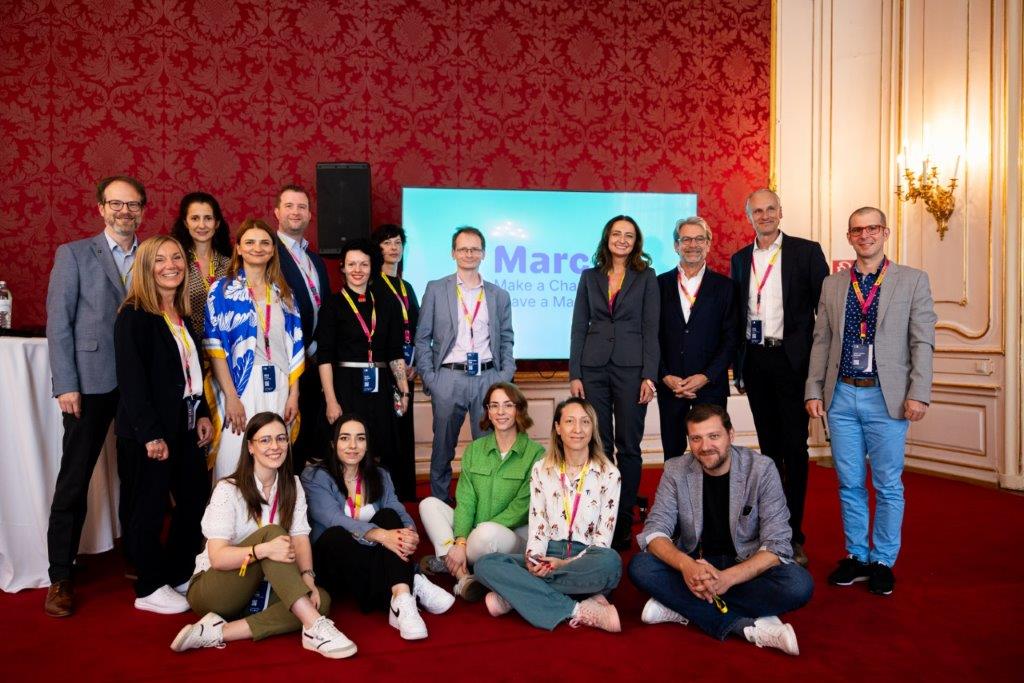
»We start with a lot of conversations to work out where exactly each company’s shoe is pinching so we know what kind of help they need to move forward. Then we jointly draw up a plan and bring the right external experts on board,« says Zoltan Berezcki, an experienced consultant who is cofounder and co-CEO of Synerb. With some start-ups, he explains, it’s a question of better defining their product. Others need to find routes to growth, and some simply need financing options.
Berezcki explains that one of Marc’s main strengths is that the programme can really address the individual needs of impact-driven businesses: »When we have workshops for all the Marc participants in Romania, they’re the ones who set the agenda.«
Often, it’s about better understanding the frameworks. For instance, many founders don’t know that social banking has other ways of financing young businesses than traditional loan departments do. »Romania and Hungary can also learn a lot from Austria, where it’s already common for businesses to pursue social or environmental goals,« says Mészáros.
»In Central and Eastern Europe, there are still very few companies that are explicitly seeking impact. Marc should help to change that,« says Bauer. The trick is to get the right balance of standardised training and tailored consulting from local partners.
With ERSTE Foundation, Erste Social Finance, Impact Hub, Sympact, Ifua Nonprofit Partner and Synerb, the list of organisations involved in the programme is long. However, along with Erste Bank Österreich’s Social Banking department, BCR and Erste Bank Hungary, they are what sets Marc apart from other impact programmes.
»If these companies can position themselves in such a way that they become interesting for both customers and investors, they can achieve sustainable success—and inspire other people to set up impact-oriented companies as well,« says Peter Surek, CEO of Erste Social Finance. With financing options specifically geared towards impact start-ups and social entrepreneurs, social banking also plays a significant role.
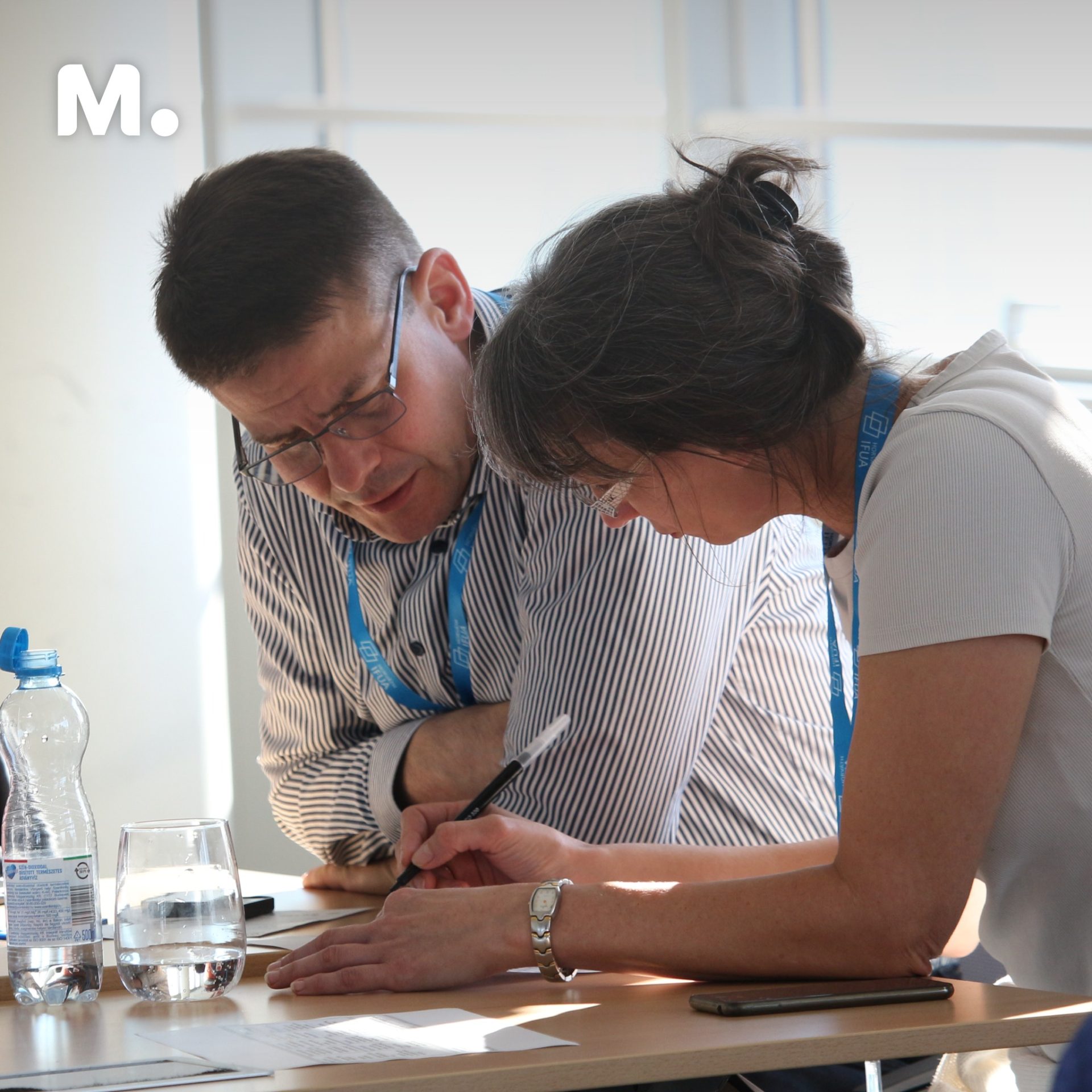
Europe will certainly benefit developmentally if social and environmental solutions can secure financial success. Lia Menyhárt is among those working to achieve this: »Half of my family has diabetes, so my ears pricked up when my doctor suggested thinking about ways of diagnosing the disease,« says Menyhárt, who has now founded a healthcare start-up called Merova. Rather than diagnostics, the company offers a digital documentation tool designed to help identify potentially serious consequences of diabetes early enough to allow medical intervention.
Because amputation can be one of the outcomes, podiatrists are one of the provider types included in Merova. In future, other providers such as nutritionists, physiotherapists and massage therapists will also be able to use the Merova customer management tool to document anomalies in their patients and customers. The programme helps to issue early warnings. »We’ve already documented 900 patients, and a lot of companies are using our preventive service. We generated revenue in our first year,« says Menyhárt.
Merova is the second company that Menyhárt has founded. But she explains that she still applied to Marc because, while it has become harder for all young entrepreneurs to raise money, it’s almost impossible for social businesses to do so in Hungary, which doesn’t have many impact investors. »So I wanted to find out exactly how I could present our impact,« says Menyhárt, »and no other accelerator programme allowed me to collaborate as deeply and as closely with mentors as Marc did.«
That’s the idea at the heart of the programme: to really understand what kind of help young businesses need in order to make progress and become interesting for investors. Menyhárt is certain that Merova will reach the next level—and then the next country. »The complications that can come with diabetes are a global problem. A lot of them can be prevented. I want to help make that happen.«
Marc
The Marc Impact Programme helps companies provide social and environmental solutions while creating a sustainable financial footing for themselves.
- It began in 2024 with a pilot phase in Austria, Romania and Hungary.
- A total of 143 organisations applied.
- Of those, 65 were admitted to the first training phase.
- Of those, 39 qualified to receive tailored consulting.
- The top 25 participate in a pitch competition in late April 2025.
- The top 2 of each country, 6 in total, present their projects to investors at the Re:Marc conference in May 2025.
A network of social innovation
The organisations that participate in the Marc Impact Programme stay connected with each other. They pursue a variety of goals. Some are in the process of scaling up their operations, while others are working on their first business plan. Marc enables them to learn from each other and change the European business world together—with impact.
Merova, Hungary
The Hungarian software start-up has developed a digital assistant that enables healthcare providers (such as podiatrists or nutritionists) working with diabetes patients to recognise complications of the disease at an early stage. A key aim is to significantly limit the risk of amputations for patients with severe diabetes.
Help Autism, Romania
Founded in 2010, Help Autism offers its own centres and training for public institutions with the aim of improving care for children with autism spectrum disorders in Romania. It is currently working on providing individualised therapy solutions and sustainable funding.
Ophori, Romania
Ophori has established itself as a brand for high-quality skincare and aromatic cosmetic products in Romania. More than 15 people with disabilities work in production. The company wants to continue to grow and reach its customers not only through retailers but also through its own shop.
Independo, Austria
The Austrian start-up Independo develops web tools that can convert text into images and images into text, and can also add the information to a calendar. This enables people with reading difficulties or cognitive impairments to schedule, manage and track appointments on their own, and to voice their opinions more easily.
Minimist, Austria
The Austrian start-up Independo develops web tools that can convert text into images and images into text, and can also add the information to a calendar. This enables people with reading difficulties or cognitive impairments to schedule, manage and track appointments on their own, and to voice their opinions more easily.
